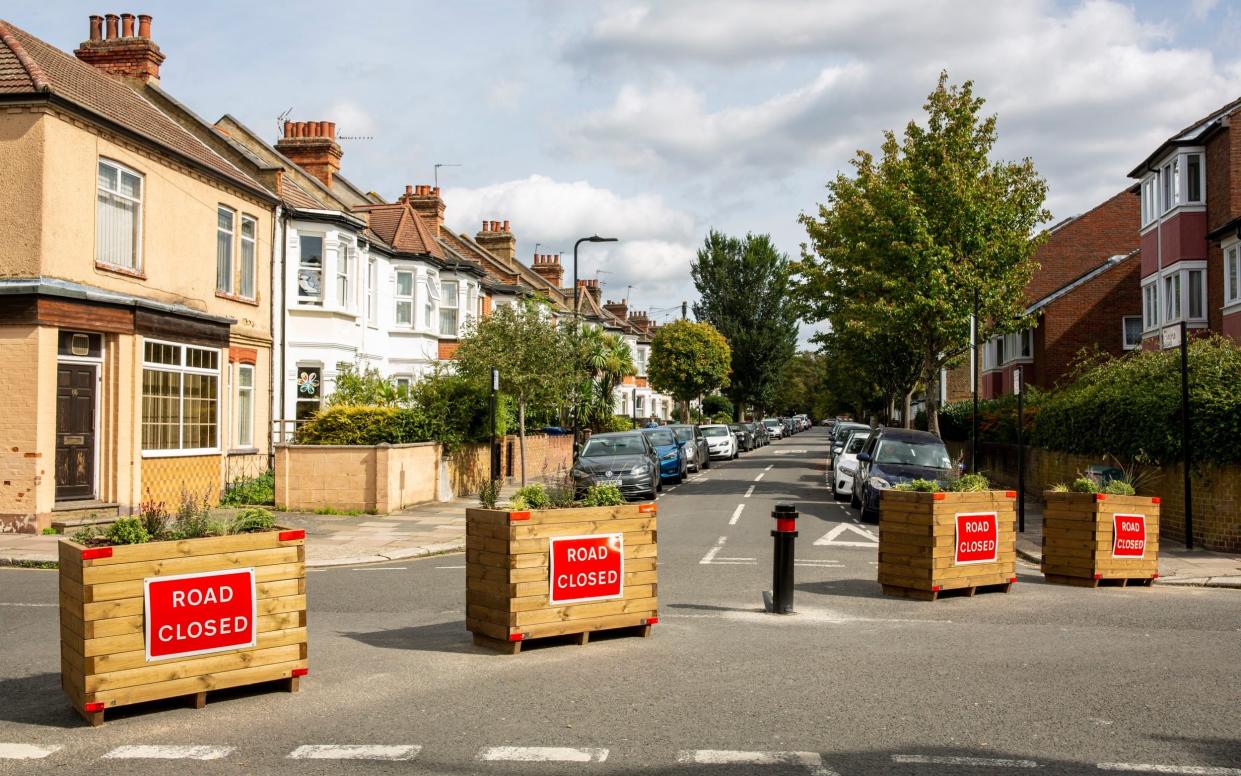Official LTN review by cycle lanes lobbyist ‘will be a whitewash’

A pro-cycling “campaigner” appointed to head a review into controversial low-traffic neighbourhoods (LTNS) will declare them a success in a “whitewash” report, a Government committee has been told.
More than 13,000 people signed an online petition on a Parliament website calling for an “independent review” into road closures amid fears they produce “increased traffic congestion and pollution”.
In response, the Department of Transport (DfT) announced that it has appointed the Active Travel Academy run by Rachel Aldred, a professor of transport, at the University of Westminster to conduct a “deep dive into the impact of segregated cycle lanes and low traffic neighbourhoods”.
But the move triggered a flurry of letters to the petitions committee complaining that Prof Aldred has a track record of supporting the creation of cycling infrastructure and LTNs and so the review will not be independent.
The complaint letters, seen by the Sunday Telegraph, highlight how Prof Aldred, 46, was a director and elected trustee from 2012 to 2018 of the London Cycling Campaign (LCC), a lobby group that has enthusiastically campaigned for the introduction of LTNs and cycle lanes.
In 2014, as chairman of the LCC’s policy forum, Prof Aldred was a keynote speaker at a Space for Cycling Campaigners’ Conference which discussed how “removing through motor traffic can be ‘sold’ to residents and others” as well as featuring seminars about how social media can get “councils to listen”.
‘My work has helped shift perceptions’
BikeBiz, an online cycling industry trade magazine, has reported how she has been praised for helping to “shift policy mindset on cycling” and how she had urged bike businesses to lobby for “better cycling infrastructure”.
She has also claimed cyclists need a “dense network of routes that are either motor-traffic-free or contain low numbers of relatively slow-moving vehicles.”
And, she has explained online how to stop transport authorities and councils from creating cycle routes that will “never allow mass cycling”.
She has also posted online: “My work has helped shift perceptions among policymakers, as well as clearly establishing the kind of streets we need to make cycling a mass mode of transport. It contributed to the appearance, for the first time, of high-quality cycling infrastructure in London and other parts of the UK.”
One letter sent to the petitions committee and Mark Harper, the Transport Secretary, accuses her of “clearly setting out to present LTNs as a success, even though the evidence on the ground suggests otherwise.”
It adds that a KC with no links to either side of the debate would guarantee an independent review of the schemes “otherwise this will be seen as a whitewash and [be] widely repudiated.”
Another letter claimed that pretending Prof Aldred’s unit was conducting an independent review of the Government LTN policy was “one of the worst cases of being allowed to mark one’s own homework.”
‘Policy decisions ultimately for ministers to take’
LTN schemes proved controversial because many road closures triggered millions of pounds in fines for motorists, slowed emergency response times to 999 calls, caused more congestion on main roads and were introduced with little or no consultation.
Prof Aldred has produced a number of reports that claim, among other things, that LTNs help “overall traffic evaporation” both inside and outside the LTNs.
Her Active Travel Academy was set up at the university in 2019 after receiving £500,000 in funding from a trust linked to the institution’s previous status as a polytechnic.
The academy’s website claims it “leads research, teaching and knowledge exchange on walking, wheeling, cycling and other active modes, use of ‘microbilities’, and reduction in car use.”
The committee, made up of 11 MPs, has now told the DfT its “response did not directly address” the request and asked ministers to “provide a revised response”.
Despite numerous emails and telephone calls, Prof Aldred failed to respond to claims she was a “pro-cycling campaigner” and “not independent”, as well as a request for comment.
The university’s communication department also failed to reply to repeated telephone calls and emails.
A spokesman for the Department for Transport, which has allocated the university £171,916 for the review, said: “All independent research is commissioned through a competitive process, in line with strict Government guidance. Once research has been conducted, policy decisions will ultimately be for ministers to take.”

 Yahoo News
Yahoo News 
